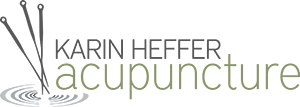Acupuncture
What is Acupuncture?
Acupuncture is part of a complete system of healing known as Traditional Chinese Medicine(TCM). In TCM theory, Qi (pronounced “chee”) flows throughout our bodies along channels or meridians connecting all levels of tissue and organs. When health problems arise, this Qi becomes weak or blocked. Acupuncture uses very thin, sterile needles to stimulate specific points along these channels on the body to remove those blockages and bring about healing naturally.
Why Choose Acupuncture?
It is a safe, natural and effective way to promote health. TCM treats the individual and seeks to find the root cause of the health concern(s).
Acupuncture and TCM promote natural healing. It can support physical and emotional health and improve overall health and well-being. It is a safe, painless and effective way to treat many medical problems. In addition, acupuncture complements other treatment methods and has few, if any, side effects when performed by a skilled practitioner.
Most people find treatment to be very relaxing with some even falling asleep.
The National Institute of Health(NIH) and World Health Organization(WHO) have recognized acupuncture to be effective in the treatment of over 100 conditions.
“One of the advantages of Acupuncture is that the incidence of adverse effects is substantially lower than that of many drugs or other accepted medical procedures for the same conditions” – NIH
What is it?
Acupuncture is an effective form of medical treatment that has been practiced for centuries in China. It involves the insertion of fine needles into the body to stimulate a desired effect. As a part of a complete holistic healthcare system called Traditional Chinese Medicine (TCM), it has gained popularity in the Western Hemisphere and is now regulated throughout the US and in 5 provinces in Canada.
What can it do?
Acupuncture can be used for:
- Effective pain management
- Strengthening the immune system
- Improving circulation
- Pre and post-operative care
- Performance enhancement
How does it work?
TCM explains acupuncture as a technique to balance the flow of energy, called Qi (pronounced “chee”) within the body.
Western medicine believes acupuncture alters the perception of pain(Gate Control Theory). Acupuncture has been scientifically proven to release pain-reducing endorphins, affect pain perception and mood, and improve circulation and immune function.
Finding a Practitioner
Ask for recommendations from family and friends.
Check a practitioner’s credentials. Acupuncture is regulated in Ontario, Quebec, Saskatchewan?, Alberta and British Columbia. Each province has its own governing body. In Ontario, the CTCMPAO website has a public registry of who is qualified to practice TCM acupuncture.
There are two styles of Acupuncture. Medical acupuncture focuses on western theories and is used in treating pain. Many who practice medical acupuncture are Medical Doctors, Physiotherapists & Massage Therapists. TCM acupuncture is much more extensive and covers a wide range of health concerns. In Ontario, practitioners are given the designation R.Ac or TCM Practitioner.
Look into your insurance policy to see if it’s covered and if there are specific criteria for coverage.
Contact the clinic and ask what is involved, what treatment and costs are involved and whether acupuncture can help with your condition.
What to Expect
Your first visit may last from 30-90 minutes with a detailed health history and physical exam. During the first visit, the practitioner may ask you about your general health and lifestyle in addition to you main concern(s). They may also take a look at your tongue and check your pulse which are diagnostic techniques unique to your Chinese Medicine diagnosis. Upon completion, you will receive a comprehensive diagnosis and treatment plan explaining the underlying imbalances, what types of treatment you will receive and a time-line of care. Anywhere from 5-25 hair-thin needles may be placed into different areas of the body. You could feel a mild aching sensation, numbness or tingling or a warm or cold sensation although many don’t feel the needles at all. Your practitioner may manipulate the needles temporarily, apply heat or mild electrical pulses to the needles. During the session, where the needles remain for 15-30min., you are able to rest comfortably. Some people feel more relaxed or even tired after treatment while other feels more energized. Occasionally, a patient may feel euphoric or light-headed, especially after the first treatment.
First Visit
Here is a list of general recommendations for receiving acupuncture.
· Please be on time
· Try not to eat a large meal before your visit
· Wear loose, comfortable clothing
· Be sure to voice your questions of concerns
· Refrain from overexertion, drugs or alcohol for up to 6 hrs after treatment.
